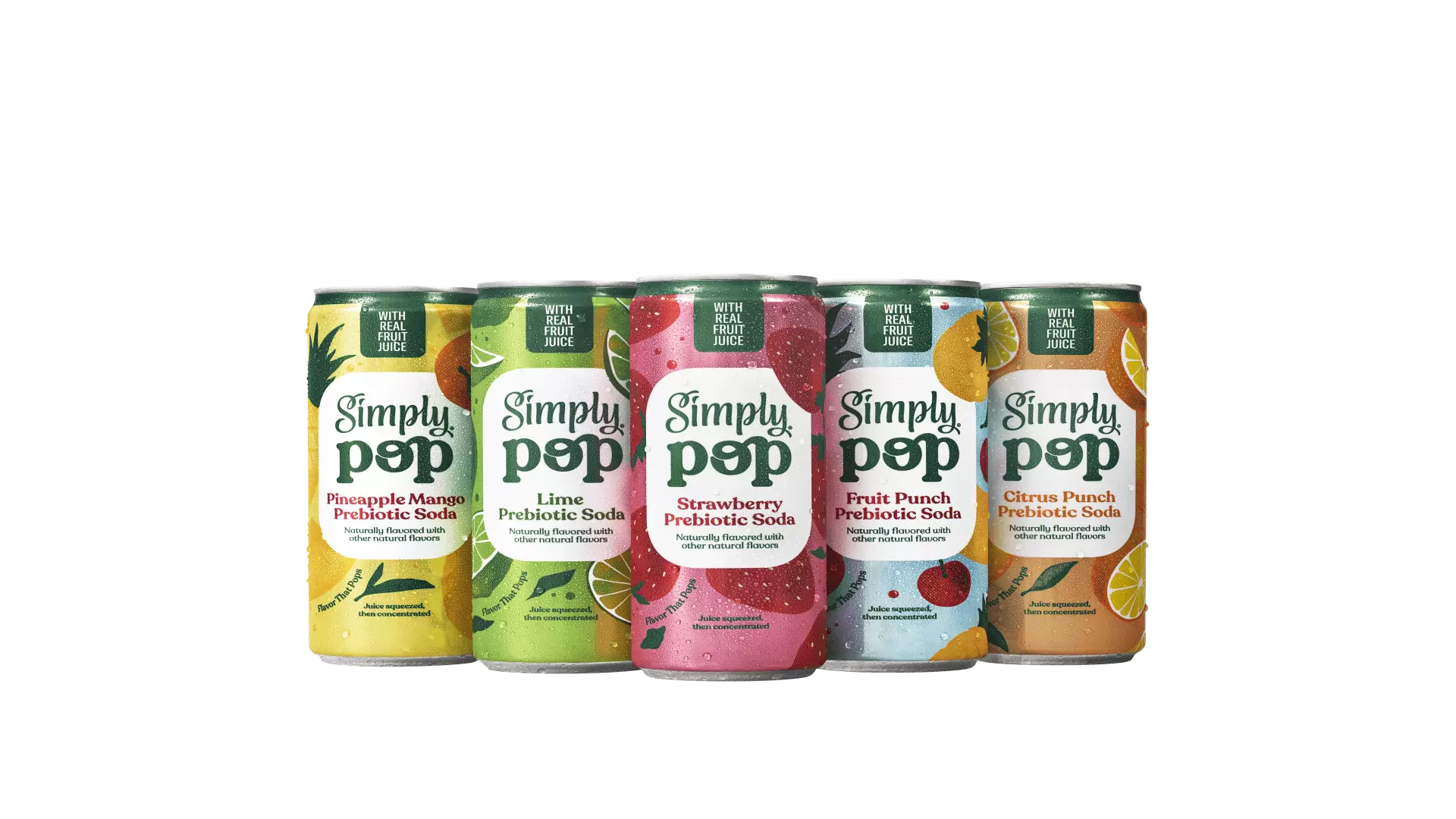The beverage landscape is undergoing a significant transformation, primarily due to shifting consumer preferences towards health-centric products. With a marked decline in traditional soda consumption over the past two decades, industry giants must innovate to capture a market increasingly dominated by alternatives such as cold brew coffee, energy drinks, and flavored waters. In this evolving context, Coca-Cola’s recent announcement of Simply Pop, a prebiotic soda brand, marks an ambitious endeavor to carve out a niche in the burgeoning digestive health segment, which has quickly gained traction among health-conscious consumers.
Over the past few years, prebiotic sodas have surged in popularity, driven by a growing awareness of gut health and its connection to overall wellness. Companies like Olipop and Poppi have pioneered this movement, successfully positioning their products as healthier alternatives to sugary soft drinks. Recent statistics suggest a dramatic increase in the digestive health beverage market, soaring from $197 million in 2020 to an estimated $440 million in 2024, according to Euromonitor International. This rapid growth underscores a major shift in consumer behavior—one that Coca-Cola is keen to tap into with Simply Pop.
Coca-Cola’s decision to position its new product line under the umbrella of its existing Simply brand speaks to the company’s strategy of blending familiarity with innovation. By incorporating fruity flavors reminiscent of its popular juice offerings—such as pineapple mango and lime—Simply Pop aims to cater to consumers’ tastes while aligning with their health aspirations. However, even with strong market potential, the brand will face challenges in standing out amid established competitors who have built significant market share and consumer loyalty.
A critical component of Simply Pop’s strategy is its appeal to younger, health-conscious consumers, particularly millennials and Gen Z. These demographics have shown an increasing appetite for healthier food and beverage options, complemented by their interest in products that support a balanced lifestyle. Despite this promising outlook, Coca-Cola is entering a field where competitors like Olipop have already solidified their presence and actively engaged their target markets. The question that arises is whether a legacy brand like Coca-Cola can succeed in an environment that traditionally favors nimble, innovative start-ups.
Moreover, success in the prebiotic soda segment won’t come without potential pitfalls. Health claims associated with digestive wellness can sometimes trigger skepticism among consumers, particularly if scientific backing remains inconclusive. This skepticism is evident in ongoing legal challenges faced by competitors like Poppi, which has been cited for misleading health claims related to its products. Coca-Cola must tread cautiously to avoid similar backlash, especially in light of the company’s past missteps in the beverage industry, such as the quick withdrawal of its Coke Spiced flavor after a lackluster reception.
Coca-Cola’s rich history of marketing prowess and vast distribution network certainly positions Simply Pop favorably compared to its smaller rivals. With revenues projected at $47 billion for 2024, the financial muscle of Coca-Cola provides a robust platform for strategic marketing campaigns, extensive distribution, and promotional efforts. This could enable Simply Pop to penetrate markets more effectively than smaller companies, which often struggle with resource constraints.
Although the company is entering a highly competitive market, Coca-Cola’s experience in innovation and product development cannot be overlooked. With sufficient investment and strategic focus, Simply Pop has the potential to capture a significant market share, particularly if it can resonate with consumers’ desire for taste and perceived health benefits.
As Simply Pop prepares for its launch on the West Coast and in the Southeast, the beverage industry will be watching closely. Success hinges on not just market entry but also ongoing consumer engagement and education regarding the health benefits of prebiotics. Coca-Cola must not only promote its new product but also foster a narrative around gut health that builds trust and credibility among consumers.
Coca-Cola’s entry into the prebiotic soda market reflects a calculated response to emerging trends within the beverage industry. While there are considerable opportunities for growth and a chance to revitalize its portfolio, the road ahead is fraught with challenges. The company’s ability to innovate while navigating the complex landscape of health claims, competition, and consumer perception will ultimately determine the success of Simply Pop in this dynamic market.

Leave a Reply